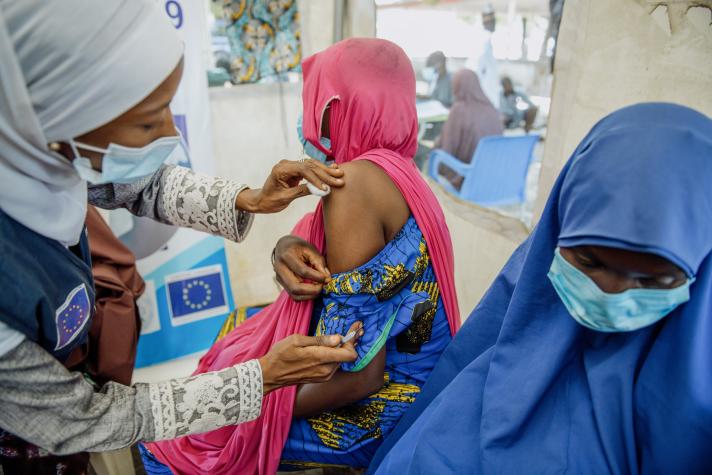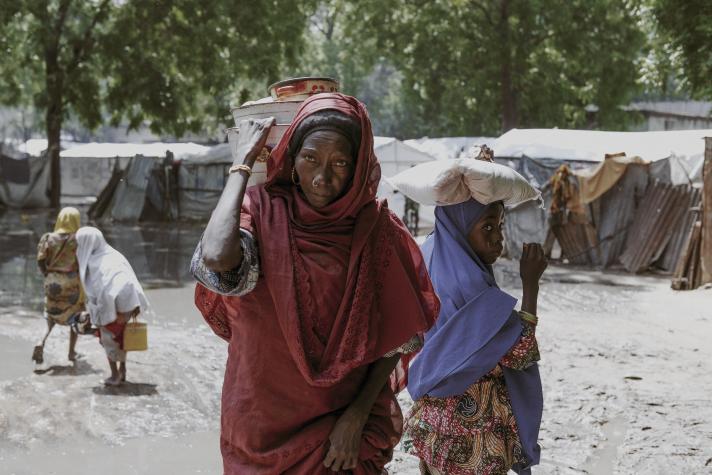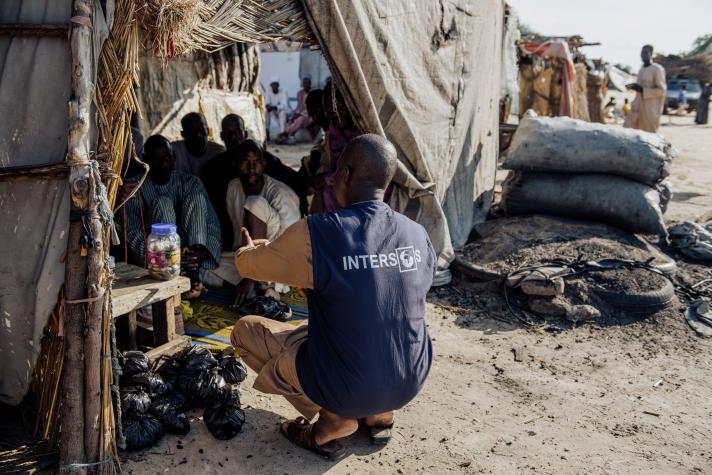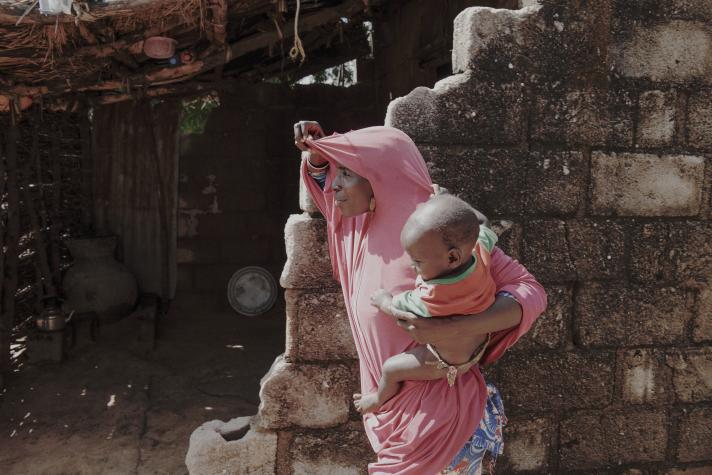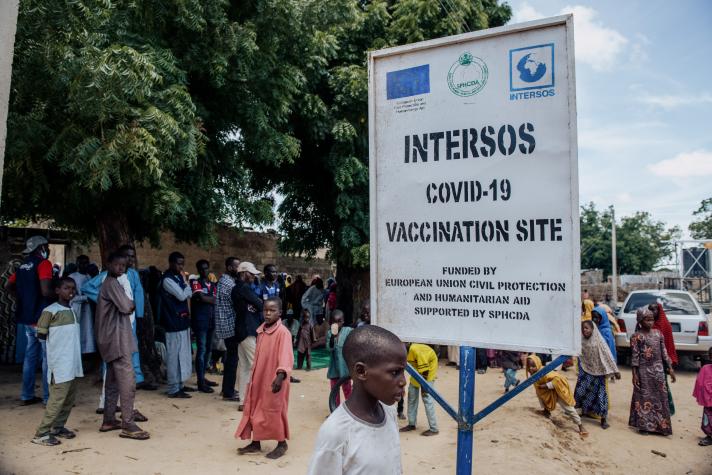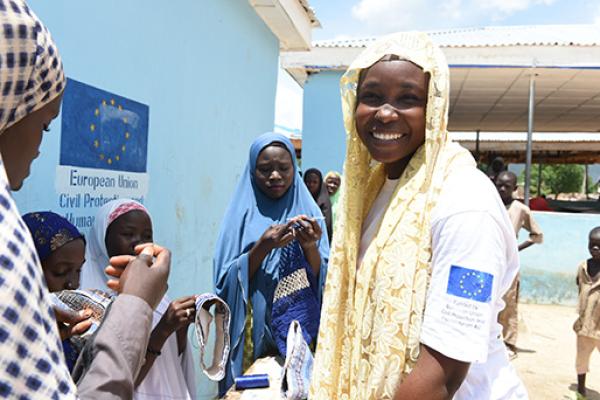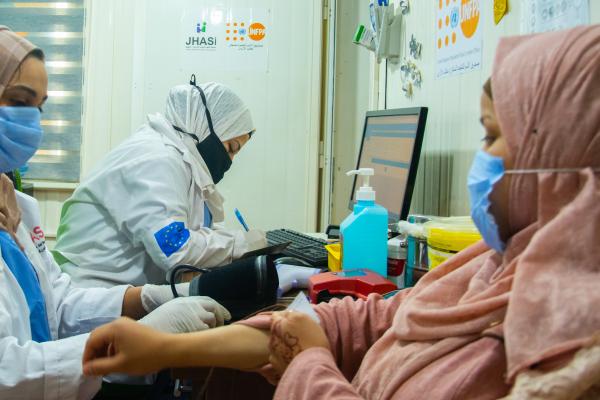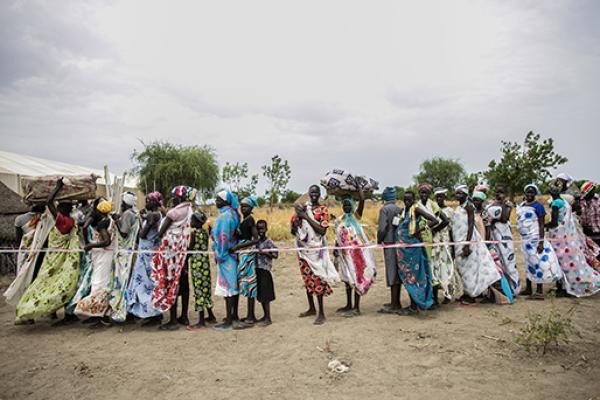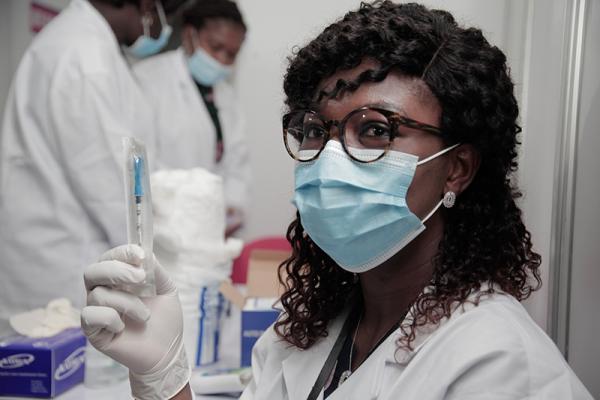For over a decade, armed conflict in the Northeastern Nigeria has caused massive population displacements and hindered basic access to essential services. As a result, humanitarian needs are deepening, with over 8 million people in need.
EU humanitarian aid focuses on improving the living conditions of internally displaced people. In overcrowded camps, they have limited access to basic services such as clean water and health care.
In this extreme context, our partner INTERSOS found a creative way to support the roll-out of COVID-19 vaccinations. They produced radio jingles indicating vaccination sites that were aired using solar-powered radios.
Communication and engagement activities helped overcome hesitancy. “Radio stations and organisations enlightened people on the importance of getting vaccinated. And so, when the vaccines reached our camp, we joined others to get it,” a beneficiary says.
Our partner administered vaccines to nearly 250,000 people, including frontline health workers, people over 50, and those with other diseases such as HIV, hypertension, and diabetes. The infrastructure can now serve larger standard vaccination campaigns.
INTERSOS has been operating in the hardest-to-reach camps of Borno State since 2016. With our support, it has been providing primary health services such as treating severe acute malnutrition, ensuring reproductive health, and preventing cholera and malaria outbreaks.
In photos, see how this campaign and our work with INTERSOS is making a difference for people in Northeastern Nigeria.
Story by EU Civil Protection and Humanitarian Aid Operations.
Photos: © INTERSOS/Christian Tasso, 2022.
Publication date: 05/04/2023

